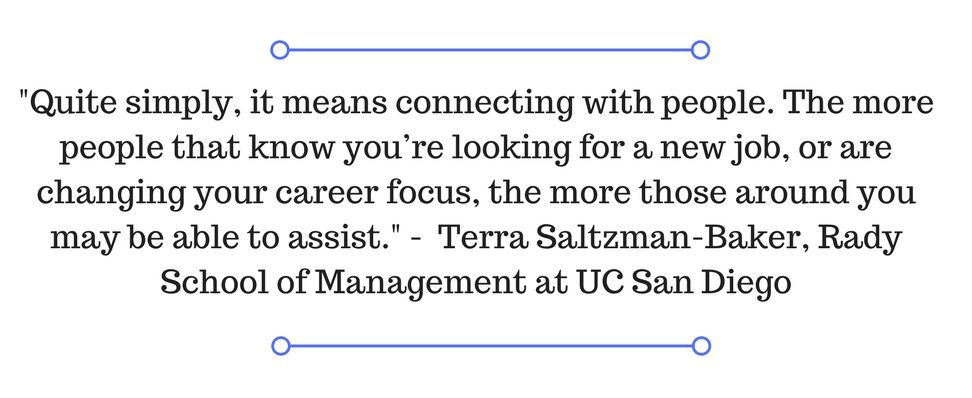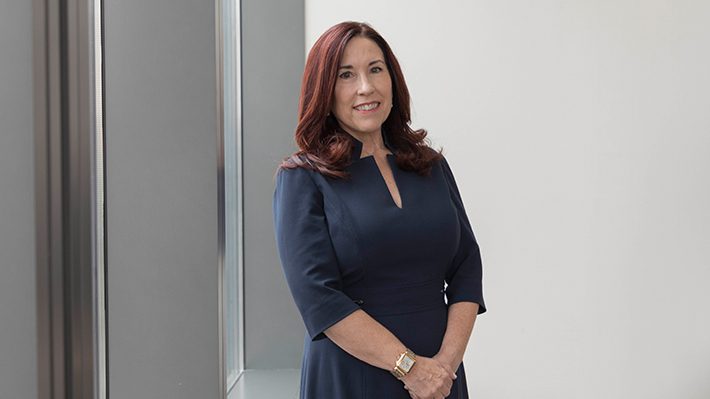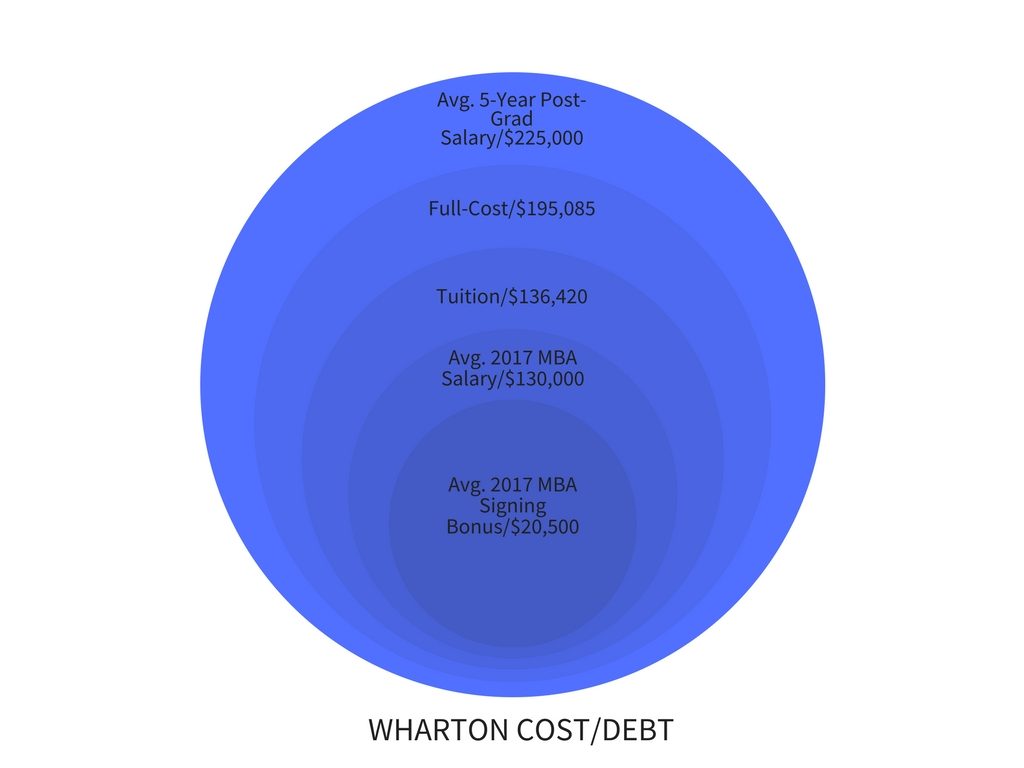What They’re Saying: Business Schools Talk About Cambridge Analytica

Less than a week after Christopher Wylie, the whistle-blower in the ongoing Cambridge Analytica controversy, helped reveal the “dirty tricks” the data mining firm used to help swing elections in North America, Europe, and Africa—including the 2016 U.S. general election—business schools are reacting to the dynamic story.
In short, UK television outlet Channel 4 News filmed several Cambridge Analytica members in an undercover operation, in which they revealed numerous strategies, including: soliciting fake bribes, hiring prostitutes to seduce potential candidates in elections, and more. Company chief executive Alexander Nix was also filmed in the video, which you can watch here, boasted the company’s outreach methods on social media, saying: “It sounds a dreadful thing to say, but these are things that don’t necessarily need to be true as long as they’re believed.”
Another member of the Cambridge Analytica team also argued that they constructed President Donald Trump’s popular “crooked Hillary” campaign slogan from 2016.
Further, the controversy revealed how the company pilfered upwards of “50 million” Facebook profiles, most of which came without consent. Facebook and its founder Mark Zuckerberg played silent on the ongoing story up until March 21, plainly saying in a CNN interview “I’m really sorry that this happened.”
“Aleksandr Kogan, the data scientist who passed along data to SCL Group and its affiliate Cambridge Analytica, built a Facebook app that drew data from users and their friends in 2013. He was allowed access to a broad range of data at the time.
Though Kogan’s data was properly obtained, he breached Facebook’s policy when he shared that information with a third party, Facebook has said. When Facebook learned about the information being shared, it asked Cambridge Analytica to destroy the data. Cambridge said it had.”
Wylie notes that Cambridge Analytica probably never destroyed that data, inevitably leading towards the company’s involvement in the 2016 election. Several of the nation’s most prominent business schools talked about the story on Twitter, which you can read below.
André Spicer, Professor of Organisational Behaviour, on Cambridge Analytica and the possibility of tech companies being forced to expand regulations on privacy and social responsibility.
Read André’s comments: https://t.co/O5IAlUTD5t#cambridgeanalytica#cassbusinessschoolpic.twitter.com/GWv95RUIMc
— Cass Business School (@cassbusiness) March 21, 2018
“The really big issue is if regulators start questioning the business model of tech firms. Currently, consumers give away their data in exchange for free services, but what if regulators start putting a price on people’s data?” –
Cass Business Professor André Spicer
Q&A with @cyberlawclinic‘s @vivekdotca about Facebook and Cambridge Analytica, U.S. privacy protections, and the regulation of the tech industry https://t.co/LPKwwSKSXw
— Harvard University (@Harvard) March 22, 2018
The head of the European Parliament announced on Monday that the EU will investigate whether the data of more than 50 million Facebook users were misused when it was accessed by Cambridge Analytica! https://t.co/q946Hed417
— FOX MBA & MS (@FoxMBA) March 22, 2018
Cambridge Analytica said it’s suspending its CEO immediately and is launching an independent investigation into allegations it misused data on millions of Facebook users. https://t.co/EKeXiuHeQF
— MIT Tech Review (@techreview) March 21, 2018
Get Ready for These March MBA Deadlines

Be on top of the MBA application process and submit your graduate school applications in a timely fashion. Getting applications in early can increase your chances of scholarships and other not-to-miss opportunities when applying for your MBA. Here’s your guide to the March MBA deadlines in some of the biggest metros. Continue reading…
Philly Schools React to Eagles Super Bowl Triumph

Philadelphia Eagles fans around the world rejoiced last night, taking home the first Super Bowl victory in the history of the organization. A handful of Philly business schools also joined in the jubilation after the upset of the New England Patriots, sharing a round of joyous reactions.
Drexel University and the LeBow College of Business was among the first to share their reaction to the Eagles victory, posting a celebratory video from University president John Fry.
On behalf of #Drexel Dragons everywhere, congratulations to our Super Bowl Champion Philadelphia @Eagles! #SBLII #SB52 #SuperBowlChampions #flyeaglesfly pic.twitter.com/VLtQkxezgn
— Drexel University (@DrexelUniv) February 5, 2018
Temple University and the Fox School of Business were a bit less formal in their congratulatory Eagles reaction, posting the following.
“True leadership is about action.” #FlyEaglesFly https://t.co/NSip55sAE6
— Fox School (@foxschool) February 5, 2018
Hey @Eagles,
That was fly. #FlyEaglesFly— Temple University (@TempleUniv) February 5, 2018
The West Chester Philadelphia campus took things a bit further, lighting up its buildings in heavy Eagles green.
WCU’s Philadelphia campus showing just a tad 😉 of Philadelphia @Eagles pride #flyeaglesfly #superbowlchamps #ramsup #wcuphilly pic.twitter.com/QsXFeio5Gr
— West Chester U (@WCUofPA) February 5, 2018
Villanova Business went a bit of a different direction, with students Michelle Maduras (’19 VSB) and Kriya Amin (’19 VSB) review the night’s ads in a live feed. Some of their favorites from Sunday night came from Mountain Dew, Doritos, and, of course, the New York Giants’ Dirty Dancing inspired tribute.
That's all from us! Thanks for following our SuperBowl takeover, and congratulations to the @Eagles, #FlyEagelsFly!!! pic.twitter.com/54q7KeFNee
— Villanova Business (@VU_Business) February 5, 2018
Out of Chicago, experts from the Northwestern Kellogg School of Management revealed their thoughts on the Super Bowl 52 ads, which you can check out over at Clear Admit.
Use These Key MBA Networking Strategies Before and After Graduation

In a competitive job market, current MBA students and recent graduates need to figure out how to stand out among their peers and make themselves attractive to potential employers. One of the most fundamental ways MBAs can maximize employment prospects, is to improve their networking skills.
Networking may be more than just a good employment strategy—it is actually a vital tool. According to Mark Brostoff, Assistant Dean and Director of Graduate Career Services at USC Marshall, “A successful job search begins and ends with successful networking. Networking should be one of the primary job search tools when pursuing a career,” he told MetroMBA.
With the advent of social media, networking is now an everyday part of our lives. Your internet presence is now a huge part of your job search. Brostoff highlights the unique value of maintaining the right kind of web profile: “Networking these days are [sic] both personal, as well as online, so maintaining a professional online appearance is extremely important before, during and after graduation.” Always keep in mind that while social media is a great way to communicate with friends and family, your online accounts are also a way of presenting yourself to potential employers.
The idea of MBA networking strategies may seem mystifying at first but as Terra Saltzman-Baker, the Director of Career Connections at UCSD’s Rady School of Management, assures, the idea is more ingrained within us than it may seem. “Quite simply, it means connecting with people. The more people that know you’re looking for a new job, or are changing your career focus, the more those around you may be able to assist.”
Successful MBA networking strategies are not only about reaching out to employers. An equally important move, and the first step in the process, is to inform those around you about career plans and ambitions. You never know how those in your social circle may be able to connect you to your ideal job. As Saltzman-Baker puts it, “it’s not just about the person you’re talking with, but those in their circle that they may think to connect you to.”

While it is a sensible move to use all of the online tools at your disposal, remember not to rely solely on the online communication that those platforms provide. Networking is all about building real relationships with others. At the heart of networking means valuing the quality of connections over quantity. Furthermore, connecting with others is not about simply finding those who can help you in your job search. Rather, the best networks benefit everyone involved. “Never mistake activity for progress,” says Dr. Janis Moore Campbell, Ph.D., the Director of Graduate Professional Development at Temple’s Fox School of Business.
“The best networking happens when people gather to learn from one another or to help one another,” she continues.
Stephanie Johnson, the Director of MBA/MS Career Services at Drexel University’s LeBow College of Business, also stresses that both parties must work together in order for the relationship to have any value. “Remember that networking is a reciprocal relationship, whenever possible, build mutually useful relationships where you aim to give before you expect something in return. In other words: “those who have given also receive.”

Stephanie Johnson, Director, MBA/MS Career Services – Photo via Drexel.edu
Perhaps one of the best MBA networking strategies is that it is never too early to start. The most successful networks are built before an MBA candidate begins their program, and then continue to evolve during and after school. Saltzman-Baker frames it simply: “The key is to start early. Don’t wait until you’re looking to make a change to use this strategy, but instead keep this up on a regular basis—you never know what may happen!”
Finding Philly’s Best MBA Return on Investment

It’s no secret that Philadelphia’s relatively low cost of living has historically made the Birthplace of America an attractive option for those in search of a big city experience outside the skyrocketing markets of other major East Coast cities.
As people flock from the New York metro region in search of a similar urban adventure at a substantially lower price point, Philadelphia has been controversially dubbed the “6th Borough.” Word to the wise for potential b-school interlopers: never tell any Philadelphian their home has been annexed by New York City.
About 90 minutes by train from New York City, the City of Brotherly Love is no Big Apple, but it’s one-of-a-kind. Sure, tourists and locals alike grip cheesesteaks in one hand while pumping their fists on the steps of the Art Museum a la Rocky, but the city reveals itself to those who have the patience (and wherewithal) to dig into it.
Whether that means embarking on a two-year MBA program or choosing among the accelerated options available, Philadelphia just happens to be home to several top ranked MBA programs in the world. Let’s take a close look at Philly’s programs. Oh, and here’s a napkin for the wiz.
Philadelphia Return on Investment
University of Pennsylvania’s Wharton School of Business
Officially the oldest business school in the U.S., The Wharton School at the University of Pennsylvania boasts well-known alumni billionaire financier Ron Perelman, LinkedIn CEO Jeff Weiner, and John Sculley of Pepsi and Apple. Wharton’s tuition of $136,420 and estimated total budget of $195,085 isn’t to be taken lightly. However, full-time MBA graduates earn an average base salary of $130,000 with an average bonus of $20,500, and a supreme 92.6 percent job acceptance rate. So, while having a somewhat unimpressive salary-to-debt ratio, Wharton’s reputation and alumni network precedes itself.
In fact, the school recently topped the annual Forbes best full-time MBA program list, sporting the best five-year financial gain after graduation. Wharton MBA graduates of the Class of 2012 are making a $225,000 average annual salary—roughly 42 percent higher than recent grads, easily topping the cost/debt ratio of the program.

Saint Joseph’s Haub School of Business
Notable alumni of Haub School of Business at Saint Joseph’s University include CEO of NutriSystems, Inc. Michael J. Hagan, Chairman and founder of Philadelphia Consolidated Holding Corporation James J. Maguire, and Senior vice president of PNC Bank Denise Viola-Monahan. SJU’s $30,294 tuition set against an average base salary of $65,000 means the school offers a competitive MBA to those who don’t want to break the bank.
Temple’s Fox School of Business
Fox School of Business at Temple University’s notable alumni include Systel CEO Jai Gulati, former COO and president for ConocoPhillips John Carrig, and CEO of Actavis and co-founder of Health Care Compliance Association Brenton L. Saunders. Fox’s tuition sits at $57,048 for residents and $80,484 for nonresidents. With a 97 percent job placement rate compared to $25,623 average debt and a $85,278 average base salary, Fox’s salary-to-debt ratio looks attractive.
Drexel University LeBow College of Business
The LeBow College of Business at Drexel University alumni include President and CEO of Rohm and Haas Raj Gupta, former CEO of Science Applications International Corp. Kenneth C. Dahlberg, and the Phillie Phanatic Tom Burgoyne. Tuition is $59,565, and graduating MBAs carry an average debt of $43,894. With a reported average base salary of $84,080, LeBow’s salary-to-debt ratio is competitive. Considering the comparatively low price point, LeBow emerges as an incredibly attractive ROI.
YOU MAY ALSO LIKE: How Philadelphia MBA Programs Help Lower-Income Applicants
University of Delaware Lerner College of Business
A short 20-minute train ride from Center City Philadelphia and under two hours from New York City, the Lerner College at the University of Delaware has an eye-catching reported average base salary of $90,291. Compared to tuition, which ranges from $33,000 to $55,000, depending on residency, Lerner’s ROI could shine through if figures hold true for most MBA earners from this institution.
Penn State Smeal College of Business
Although its central campus is located in Happy Valley, PA, the Smeal College of Business at Penn State offers an executive MBA program in Philadelphia. The program is priced at a hefty $102,000, but average graduate debt is reported at $36,500, and median salaries ranging from $97,890 to $101,857. With such an impressive salary-to-debt ratio, Smeal is an attractive option for those who prefer easy metro access rather than living in the thick of the action. Notable alumni include Chairman and CEO of Petroleum Products Corp. John Arnold, and Former Chairman and CEO of Merrill Lynch & Co. William Schreyer.
Choosing the Best MBA: Philadelphia vs. Washington DC

On the surface, cities like Philadelphia and Washington DC appear to have a lot in common. Both have occupied roles as a center of U.S. history, and have transformed into exciting and ever-changing metros for both established businesses and new startups. If you’re interested in earning an MBA in a top metro area on the East Coast, it might seem impossible to choose between the two.
Even so, Philadelphia and DC offer a number of exciting—but different—kinds of opportunities for up-and-coming business professionals. Between what program you want to pursue and what kind of career you envision yourself in down the line, understanding the differences between top metros can be a crucial part of planning your future. Below, we’ll break down some of the biggest differences in location, programs, and job placement for each metro.
Philadelphia vs. Washington DC: The Differences
For ambitious business students hoping to put their education to work in a government agency, it’ll be hard to beat the nation’s capital for opportunities and experience. Even for those looking outside of the government setting, the DC metro area is home to fifteen companies on the Fortune 500 list, including corporate giants like Exxon Mobile and Walmart. Yet while such heavy hitting companies in the area provide a high earning potential, MBAs will still want to consider the high price of living in DC: currently, the city ranks as the third most expensive place to live in the country.
Check This Out: Searching for the World’s Top MBA Recruiters: Comcast
While Philadelphia may not be the city that pops into your mind as a bustling center of business, research shows the City of Brotherly Love can’t be beat when considering the job market and affordability: a 2016 survey from Adobo found that Philadelphia’s unemployment rate was 20 basis points below the national average, while the average price of a home was at or below 30 percent of the average income. MBA graduates will find no shortage of business opportunities in the city, even among major firms: in 2017, 20 companies in the Philadelphia metro made the Fortune 500 list.
Washington DC’s Full-Time MBA Programs
Featuring more than 35 higher education institutions with post-bachelor business programs, Washington DC is home to some of the top MBA programs in the United States. Fully aware that many of these programs will shape future politicians and government leaders, many of the MBA programs in Washington DC include a focus on integrity and ethics within the global business community.
Full-Time MBA Programs in DC Include:
- George Mason University School of Business
- George Washington University School of Business
- Kogod School of Business – American University
- University of Maryland R.H. Smith School of Business
- McDonough School of Business – Georgetown University
Philadelphia’s Full-Time MBA Programs
When it comes to business schools, Philadelphia is probably best known for The Wharton School at the University of Pennsylvania, consistently named as one of the top business programs in the world. But Philly is also home to a wide range of programs with a variety of specializations. Programs like the full-time MBA at Temple University’s Fox School of Business also offer students to take their education beyond Philadelphia, with international campuses based in Italy, London, and Japan.
Full-Time MBA Programs in Philadelphia Include:
- La Salle University
- LeBow College of Business – Drexel University
- Villanova School of Business
- West Chester University
Cost of MBA Programs
Just as important a factor as cost of living, average cost for an MBA program is an important consideration when choosing where to earn your degree. As expected, top programs in both Philadelphia and Washington DC can come with a high price tag. The average cost estimate for one year at Wharton is $105,265, while tuition at DC’s Georgetown McDonough School of Business is $90,591. The average for each city, however, remains much for affordable: approximately $82,090 for programs in Washington DC, and slightly lower in Philadelphia—schools like West Chester even offer an MBA as low as $21,000 per year.
Job Placement and Salary
With so many incredible companies located in both Washington DC and Philadelphia, MBAs have the chance to earn top salaries that can go a long way in both cities. Depending on the position, MBAs in Philadelphia can make anywhere from $64,665 per year (as a financial analyst) to $104,186 per year (as a senior product manager). In Washington DC, the average salary for an MBA graduate is in the $80,000 range, with employees reporting yearly salaries of $74,758 (operations manager) up to $111,983 (marketing director).
